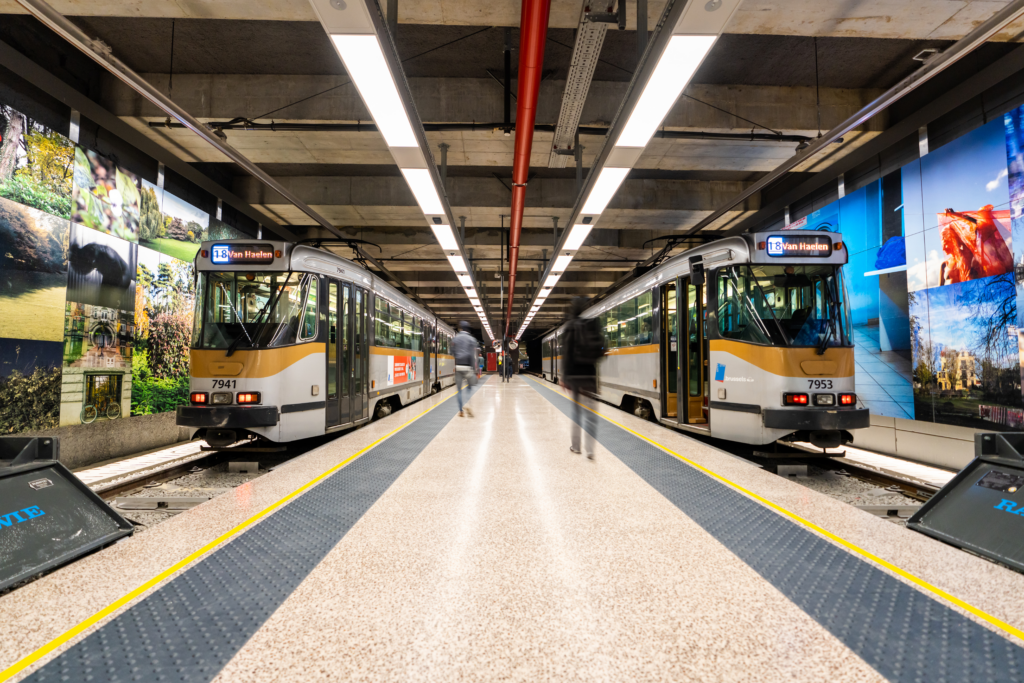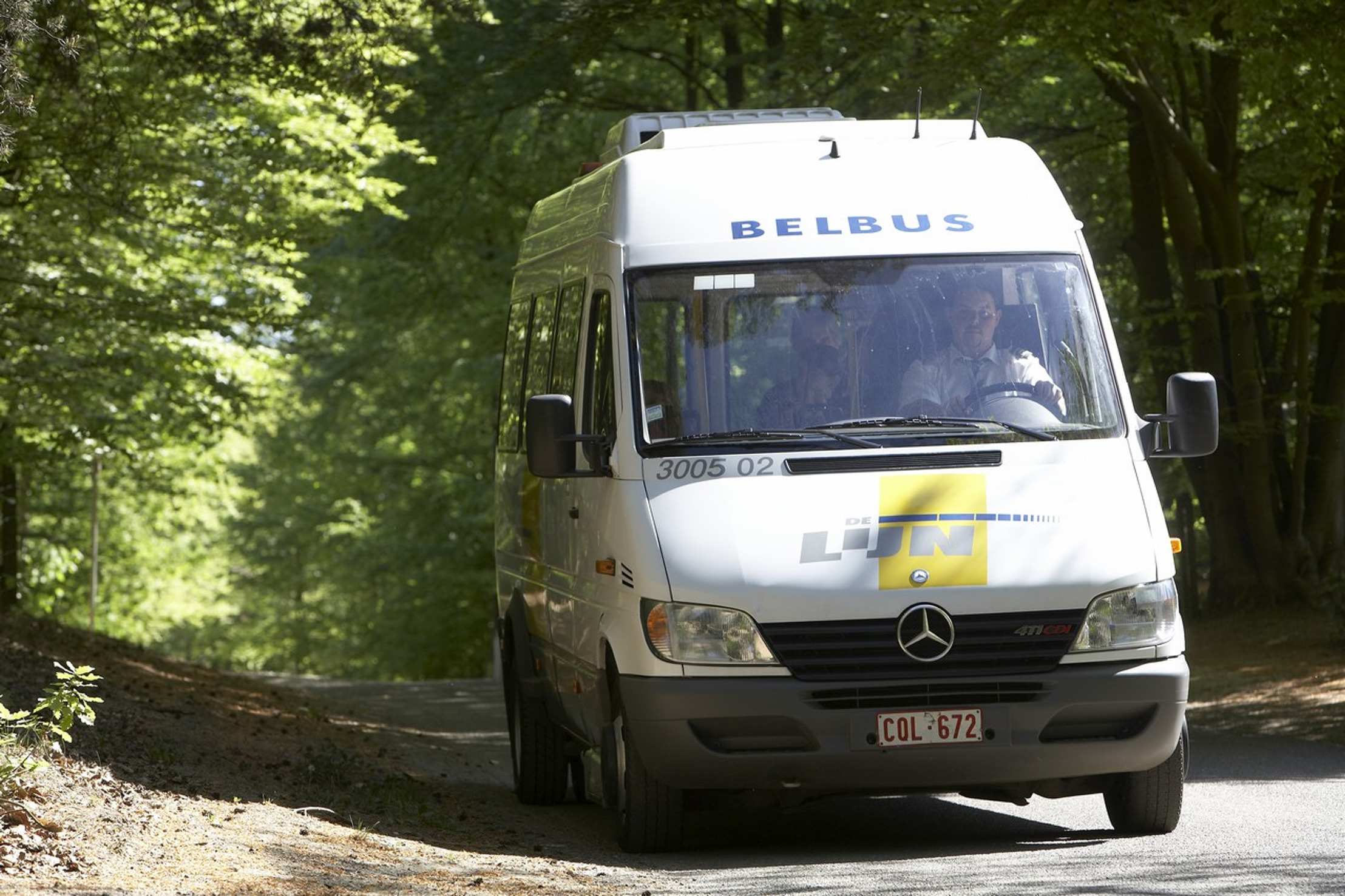Customer satisfaction at Flemish public transport operator De Lijn is declining, even though it carried 17% more passengers last year. The ageing bus fleet and staff shortages continue to hamper De Lijn.
The Brussels public transport company MIVB/STIB also carried more passengers last year (+11%), but a more attractive offer and better punctuality ensure higher customer satisfaction.
€29 million loss
De Lijn transported 286,4 million passengers last year, up 17% from 2022. Roughly, this puts the company back at pre-corona crisis levels and the upward trend seems to continue during the first quarter of this year, with a 6% increase compared to the same period last year.
That increase also led to a 15% growth in net income from transport for 2023. However, costs also rose, causing De Lijn to end the financial year with a 29 million euros loss. Against an endowment of 1,137 billion euros and 408 million euros in revenues, there were 1,575 billion euros in costs.
800 drivers needed
However, although De Lijn is pleasantly surprised to be gaining new passengers, too many negative factors continue to trouble the company. Services, for instance, remain under pressure due to an overheated labour market and an ageing bus fleet, said top woman Ann Schoubs when presenting the 2023 annual report.
De Lijn is still struggling to find the necessary drivers and technicians. This is especially the case in the Flemish periphery around Brussels, the Antwerp region, and the region around Leuven. De Lijn recruited 837 drivers and 114 technicians last year, for 2024 it needs another 800 drivers and 100 technicians.
Old sore of the aging bus fleet
Another problem remains the ageing bus fleet. The average age of the bus fleet is ten years, with one in three buses being 15 years or older. And those old buses need more maintenance. A delayed inflow of new buses and the bankruptcy of bus manufacturer Van Hool have also made it difficult for De Lijn today to deploy enough available buses every day.
De Lijn has in its vehicle fleet some 850 buses made by Van Hool. Some 16 of those buses are currently sidelined due to difficulties in obtaining parts. Of the 35 e-buses De Lijn bought from Van Hool, 10 are on the sidelines. To switch to a completely emission-free bus fleet, De Lijn and its operators must replace 3,600 buses and convert all depots.
€300 million extra
Add to this the fuss surrounding the introduction of a demand-driven network in which 3,000 bus stops were scrapped, and it should come as no surprise that overall customer satisfaction dropped from 62,3% to 59,7 last year. Only 41% of passengers were happy about punctuality last year, compared to 45% a year earlier. The percentage of scheduled rides that De Lijn failed to carry out last minute rose to 2,52% in 2023, compared to 2,36% in 2019.
There has been little immediate improvement in attendance, and De Lijn warns that there is little it can do about the problems this year and next.
To change this precarious situation – “Policymakers underestimated the transition to electric vehicles,” De Lijn says – the budget needs to be increased. “Due to skyrocketing inflation and shortages of materials on world markets, the planned investment budgets are no longer enough to make up for lost time – and certainly not to improve the quality of our service,” said chairman Johan Sauwens (CD&V).
De Lijn is therefore asking for an additional 300 million on an annual basis to buy, for example, young second-hand buses or lease new ones. This would bring De Lijn – last year it received an endowment from the Flemish government of 1,14 billion euros – to approximately the funding level of the Walloon public transport company TEC.

10% more travellers and revenue for MIVB/STIB
Therefore, the contrast with MIVB/STIB could not be greater: while De Lijn’s service is under pressure, the Brussels public transport company is in a jubilant mood.
It transported 375,8 million passengers in 2023, up 11% on the previous year, although this doesn’t not put the company back at the pre-corona pandemic level of around 434 million passengers. All MIVB/STIB metros, buses, and trams covered a total of 53,5 million km, up 750,000 from 2022.
Consequently, the attractive offer, with increased frequency between vehicles also in off-peak hours, ensures high customer satisfaction. According to MIVB/STIB CEO Brieuc de Meeûs, about 80% of travellers give the public transport company a seven out of ten.
In addition, MIVB/STIB saw its revenues increase by around 10% compared to 2022, accounting for an additional 291 million euros. The decision to provide the option of contactless payment was also a good move: the number of these payments in buses, trams, and metros accounts for more than half of the number of one-way tickets sold in Brussels.
Problem of hard drug use in stations
De Meeûs also states that comfort is increasing and the level of cleanliness in stations ‘remains stable’, although he does not want to shy away from the problems regarding hard drug use in metro stations. “We cannot hide that,” he says. In 2023, MIVB/STIB’s security service recorded more than 4,000 incidents of drug abuse in Brussels metro stations. MIVB/STIB will now deploy counselling for drug users in the stations through mixed teams of security officers and social workers.
Greater network and bike-sharing service
In the future, MIVB/STIB also wants to continue investing heavily in expanding the network. For example, 40 km of additional tram tracks are to be constructed by 2025, and MIVB/STIB will continue to strongly support the large-scale Metro 3 project, even though Brussels Minister for the Environment Alain Maron (Ecolo) announced that he no longer favours the current expansion of the metro over expensive costs.
Finally, MIVB/STIB may also manage its bike-sharing service in the future. The management contract of the current service, Villo!, expires by the end of 2026. MIVB/STIB intends to explore various options regarding the possible operation of its bike-sharing service to replace Villo! in Brussels by then.




Comments
Ready to join the conversation?
You must be an active subscriber to leave a comment.
Subscribe Today